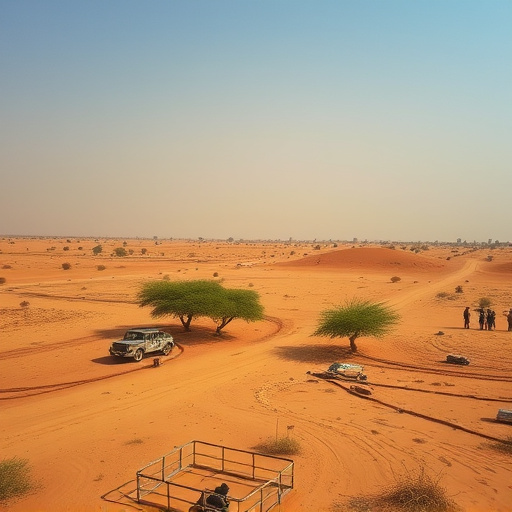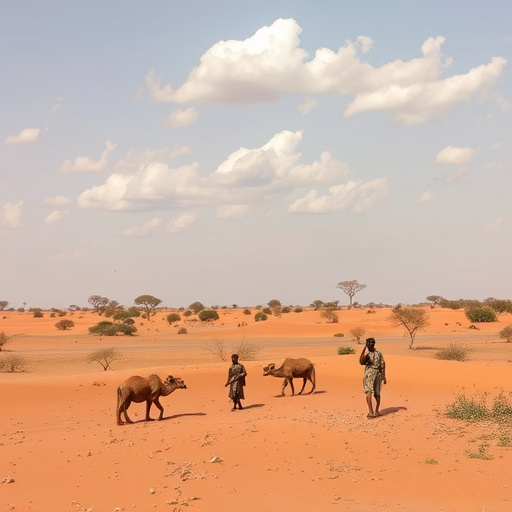Sudan's ancient history and cultural heritage are highlighted by iconic archaeological sites like Meroe, offering a unique exploration experience. Eco-friendly tourism and community engagement preserve traditional practices while contributing to the country's economic vitality. Recent collaborations ensure the protection of these historical marvels, fostering national pride and passing down Sudan's rich past for future generations.
“Sudan’s archaeological sites unveil a rich tapestry of ancient history, showcasing the might and legacy of its bygone civilizations. From iconic landmarks to hidden treasures along the Nile Valley, this nation is a treasure trove for archaeologists. This article explores Sudan’s remarkable historical heritage, highlighting key sites that offer glimpses into the vibrant past. Discover how efforts to preserve these sites ensure their longevity, making them essential destinations for those interested in exploring Sudan’s ancient civilizations.”
- Unveiling Sudan's Ancient Civilizations
- Iconic Sites: A Window to the Past
- Preserving Historical Treasures in Sudan
- The Rich Archaeology of the Nile Valley
Unveiling Sudan's Ancient Civilizations

Sudan’s ancient history is a treasure trove waiting to be discovered, offering a glimpse into the rich civilizations that once thrived along the Nile River. From majestic pyramids to intricate rock art, the country’s archaeological sites are a testament to its diverse and fascinating past. One of the most notable sites is Meroe, an ancient kingdom that once ruled the region. Here, visitors can explore towering pyramids, including the famous Queen’s Pyramid, providing a unique insight into the engineering prowess of this forgotten era.
Supporting local artists and communities is integral to preserving Sudan’s cultural heritage. Many artifacts found at these sites inspire contemporary art forms, with local artisans creating beautiful crafts that tell stories of ancient times. Language barriers in Sudan can make communication challenging for tourists, but engagement with these artists and community members offers a chance to learn about traditional medicine practices and sustainable agriculture, enriching the overall experience. Eco-friendly tourism practices in Sudan are gaining traction, allowing visitors to explore this historical landscape responsibly while contributing positively to the country’s cultural and economic well-being.
Iconic Sites: A Window to the Past

Sudan boasts iconic archaeological sites that serve as captivating windows into its rich and ancient history. From majestic pyramids to intricate temples, these remnants offer invaluable insights into civilizations past. The country’s diverse landscapes paint a vivid picture of its tumultuous journey through time. For instance, the ancient city of Meroe, located along the Nile River, showcases impressive pyramids once belonging to powerful rulers, providing a glimpse into the kingdom of Kush.
These archaeological treasures not only attract scholars and historians but also play a vital role in diversifying the economy beyond oil by attracting tourists from around the globe. Learning basic Arabic phrases can enhance visitors’ experiences as they explore these sites and immerse themselves in Sudan’s cultural heritage. Traditional instruments played across regions further enrich the atmosphere, giving life to the ancient tales embedded in these iconic locations. Even challenges facing Sudanese schools, such as resource scarcity or educational gaps, cannot dim the allure of these historical marvels. Give us a call at your earliest convenience to embark on this captivating journey through Sudan’s archaeological past.
Preserving Historical Treasures in Sudan

Sudan’s archaeological sites are not only windows into its rich ancient history but also critical components in preserving the country’s cultural heritage. In recent years, significant progress has been made in documenting and protecting these historical treasures, thanks to collaborations between local authorities, international organizations, and passionate scholars. This collaborative effort is crucial in light of Sudan’s complex political landscape, which has seen recent developments that impact access and conservation efforts.
Despite the challenges posed by managing health crises in remote villages and navigating business opportunities in Sudan’s evolving economy, initiatives to celebrate cultural heritage through sound dance forms unique to Sudan continue to thrive. These endeavors not only contribute to the preservation of historical sites but also foster a sense of national pride and identity. By protecting these archaeological wonders, Sudan ensures that its ancient stories can be told for generations to come, offering insights into its diverse past and vibrant present.
The Rich Archaeology of the Nile Valley

The Nile Valley in Sudan is a treasure trove for archaeologists and history enthusiasts alike, offering a window into one of Africa’s most ancient and rich cultures. This region boasts an extensive history spanning thousands of years, with evidence of early human settlements dating back to prehistory. The fertile lands along the Nile River have nurtured civilizations that left behind remarkable artifacts and monumental architecture.
Here, visitors can explore ancient sites such as Meroe, a former royal city known for its pyramid-like tombs, and the impressive temple complexes at Nabta Playa, which showcase the complex religious practices of early Sudanese communities. Integrating modern and traditional healthcare approaches is crucial in preserving these archaeological wonders, alongside Girl child education initiatives aimed at empowering local communities. Engaging with these communities is essential to understanding and promoting Sudan’s cultural heritage while overcoming travel challenges, including Visas and entry requirements, to make this ancient land more accessible for curious travelers.
Sudan’s archaeological sites, nestled along the majestic Nile Valley, offer a captivating glimpse into the country’s rich historical tapestry. From ancient civilizations to iconic landmarks, these treasures preserve stories of past cultures that once thrived. By exploring and preserving these historical sites, Sudan ensures its place as a beacon for archaeological discoveries, inviting the world to delve into its ancient past. The nation’s commitment to safeguarding its heritage promises a continuous revelation of its vibrant, bustling history.
